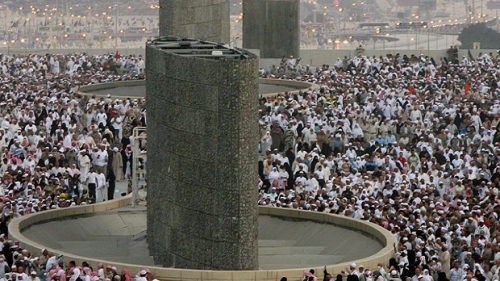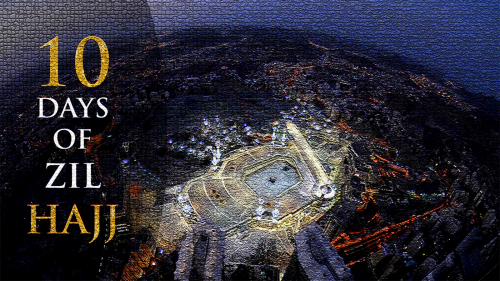Make Knowledge Relevant in the New Spirit of Time

Education process has received considerable attention by many parties for its crucial roles in the development of individuals, the society, and a nation. In this regard, the roles of educational institutions have been the focus of attention by government, policy makers, educationists, and the public. University, being a higher education institution entrusted to advance the competitiveness of the society, is expected to develop individuals in society who have a set of critical functions. A university has the role to enable students to grow up, to learn, to seek a larger purpose of life and be useful in society.
Academic activities in a university, namely teaching and learning; research, publication, consultancy, or community engagement should facilitate the application of knowledge to change, improve and develop individuals and community. Any university plays the role to equip individuals with the ability to protect selves and others from indulging in negative behaviors and preventing them from suffering their consequences. That prepares students to be the able agents who can nurture and sustain good livelihood on this earth, and good life in the hereafter, hence attaining hasanah in the two worlds.
A university community, ranging from academics to students, is a community of knowledge workers. They learn, generate, and disseminate knowledge which are linked to the needs of the society. The knowledge should lie on strong fundamentals, which is stated or enshrined in a university’s ethos. Academic curriculum, research orientation, and any academic activities should be based on the ethos which are described on university’s missions and vision. For a faith-based university like the International Islamic University Malaysia, the missions demand her academics and students to understand the concept of Islamization as a process to deal or work with knowledge. Knowledge is taught to serve certain outcomes, focusing on the level of knowledge attainment among students as to whether they know the subject matter covered in their course, understand it, able to apply it, evaluate it, analyze it, and synthesize it. The focuses are expected to be linked with Islamic perspectives. In essence, the University emphasizes on the integration of knowledge.
In accomplishing the tasks well, it is important for academics and students to understand the property of knowledge, by adopting a certain philosophical approach. They should be able to identify what to address or analyze when they want to understand a discipline of knowledge. Are they analyzing or Islamizing the way knowledge is acquired? Academics and students should be able to discuss the truth in knowledge by linking it to the sources availed to them, instead of only relying on modern epistemology. Are they evaluating the subject matter in the discipline of knowledge from Islamic perspectives? In enabling them to do this, Islamic Worldview should be included in all courses. More important, it is not only about knowing the subject matters as well as their sources, but also the internalization and manifestation of the knowledge. Stated another way, it is the underlying values of the knowledge and its end values which have to be addressed. These threesome of the essential notions to be looked at when analyzing the property of knowledge from Islamic perspectives. The perspectives encompass everything that humans do, necessitating the need to address the characteristics of people who deal and benefit the knowledge.
In integrating knowledge with Islamic perspective, a discipline of knowledge could be addressed by linking it with the axiological, epistemological, and ontological notions. It can lay some basic foundations for academics and students to analyze and explore certain domains of knowledge. That way, the link between the education philosophy of the University can be augmented, reducing disconnect between knowledge and the institutional ethos.
In conclusion, knowledge should be continuously generated and developed. With passing of time, the concept of knowledge and values has to be reapplied so that they are relevant and applicable to the changing situations. This could be substantiated by exploring the knowledge available in, or steered by, the Islamic sources (the Quran and Hadiths), an effort taken in the integration of knowledge agenda. This agenda entails several initiatives, namely judicious integration, strategic cooperation, strong collaboration, and consistent interaction between academics and scholars in Islamic Revealed Knowledge fields with Science or Social Science disciplines. A good synergy among academics in various disciplines can result in coordinated efforts in developing, disseminating, and making knowledge relevant. Also, prudent engagement with specific groups of community are needed in order to educate them with knowledge or transfer the application of knowledge. It will enable them to enhance their quality of life. This engagement would emulate the prophetic mission of spreading rahmatan lil alamin or mercy to all in the community, regardless of their backgrounds.
In short, academics and students should epitomize the concept of social change and development by making the discipline of knowledge applicable and useful for the society. They should be leading the community with the knowledge and skills they champion. They too should uphold good values as knowledge workers, integrating their wisdom, integrity, ihsan, and mercy with the knowledge they possess. A good link between the knowledge community is essentially crucial to enable individuals and society to fare well in the increasingly changing social, economic, political, technological, and even geographical aspects, all would mold a new set of defining spirit (zeitgeist) to the society. The new zeitgeist requires all not only to continually generate knowledge, but also to educate and engage others to transfer the knowledge for the benefit of all mankind.
Shukran Abdul Rahman is an Associate Professor at the Department of Psychology, International Islamic University Malaysia (IIUM); and Dean of the Kulliyyah of Islamic Revealed Knowledge and Human Sciences. He teaches and conducts research in the area of Industrial and Organizational Psychology.
Ruhaya Hussin is an Assistant Professor at the Department of Psychology, International Islamic University Malaysia (IIUM); and Coordinator of Employee Assistance Program at the Kulliyyah of Islamic Revealed Knowledge and Human Sciences. She teaches and conducts research in the area of Industrial and Organizational Psychology.
Topics: Higher Education, Humanity, Islamic Knowledge, Social Change Values: Education, Knowledge
Views: 1720
Related Suggestions

















